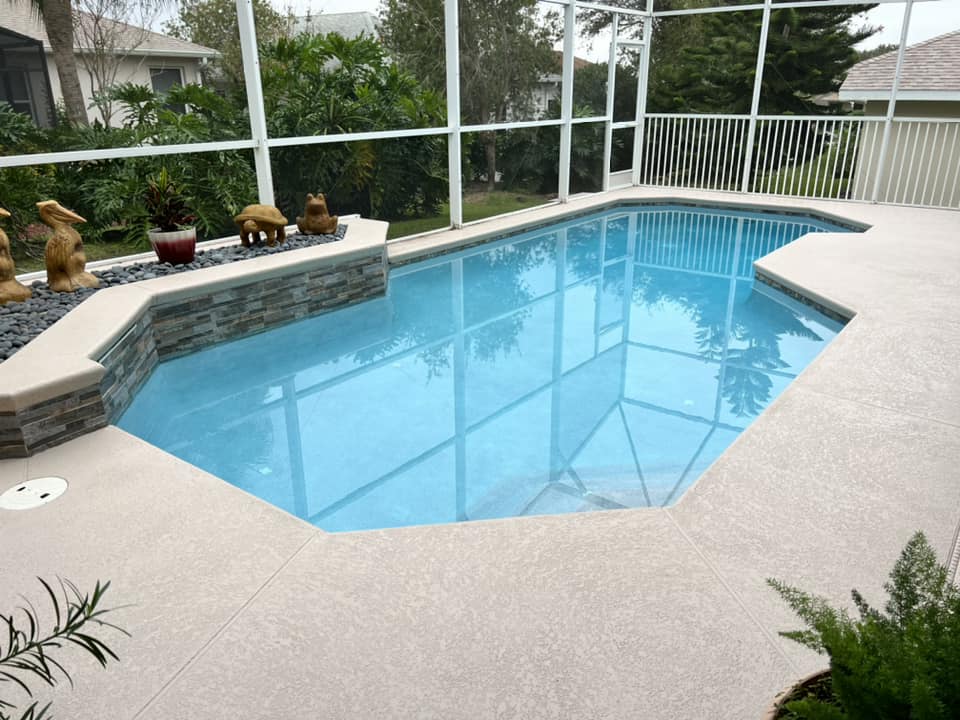Introduction: Understanding Your Damaged Pool
A damaged pool can turn a backyard oasis into a source of stress. Recognizing the signs of pool damage early can save you from more extensive and expensive repairs. This article delves into essential knowledge about pool damage and offers effective solutions for a quick fix.
Signs and Causes of Damaged Pool
- Visible Cracks and Leakage: Small cracks can quickly become larger fissures if not addressed promptly, leading to significant water loss.
- Discoloration and Staining: These can indicate chemical imbalances or algae growth, which may need more than just cosmetic fixes.
- Equipment Malfunction: From faulty pumps to inefficient filtration systems, equipment issues can cause further damage if left unchecked.
How to Assess Your Pool’s Condition
- Visual Inspection: Regularly walk around your pool and check for visible signs of wear and tear.
- Regular Maintenance Checks: Schedule monthly inspections with a professional to catch potential problems early.
- Water Quality Tests: Keep an eye on your pool’s chemical levels to ensure they’re within safe parameters.
Checklist for Basic Pool Inspection
| Aspect to Check | What to Look For | Frequency |
|---|---|---|
| Pool Surface | Cracks, peeling | Monthly |
| Water Clarity | Cloudiness, debris | Weekly |
| Equipment | Unusual noises, leaks | Monthly |
DIY Solutions for Damaged Pool
For smaller issues, such as minor cracks or discoloration, here are some DIY fixes:
- Patch Kits: Available for both vinyl and fiberglass pools, these kits can seal small cracks and tears.
- Pool Shock: A strong dose of chemicals can help clear up algae blooms and restore water clarity.
- Filter Cleaning: Regular cleaning can prevent many common problems associated with poor water quality.
List of DIY Pool Maintenance Tools
- Pool skimmer
- Algae brush
- Vacuum head and hose
- Water testing kit
When to Call a Professional for Pool Repair
Some situations require the expertise of a professional:
- Large Cracks and Structural Damage: These issues can compromise the safety of your pool.
- Complex Equipment Failures: Advanced problems with pumps or heating systems need professional diagnosis and repair.
Professional vs. DIY Pool Repair Guide
| Issue Type | Is DIY Possible? | Professional Required? |
|---|---|---|
| Small Cracks | Yes | No |
| Large Structural Damage | No | Yes |
| Equipment Malfunction | No | Yes |
Enhancing Pool Safety and Aesthetics
After addressing repairs, consider upgrading for safety and visual appeal:
- Safety Covers and Fences: Essential for families with children or pets.
- LED Lighting: Enhances the pool’s look while improving visibility at night.
- Landscaping: Adds beauty and privacy to your pool area.
Pool Aesthetic Enhancements
| Enhancement | Benefits | Considerations |
|---|---|---|
| Safety Covers | Prevents accidents | Must fit pool shape |
| LED Lighting | Energy efficient | Requires proper wiring |
| Landscaping | Increases privacy | Ongoing maintenance |
Sustainable Pool Maintenance Practices
Adopting sustainable practices not only ensures your pool operates efficiently but also minimizes its environmental impact. Here are key strategies to consider:
- Energy-Efficient Equipment: Opt for pumps, heaters, and filtration systems that consume less power.
- Solar Pool Covers: Reduce water evaporation and keep your pool warm using solar energy.
- Eco-friendly Chemicals: Use chemicals that are less harmful to the environment.
Benefits of Sustainable Pool Practices
| Sustainable Practice | Environmental Impact | Cost Efficiency |
|---|---|---|
| Energy-Efficient Pumps | Lowers energy consumption | Reduces utility bills |
| Solar Covers | Decreases water and heat loss | Minimizes heating costs |
| Eco-friendly Chemicals | Reduces toxicity | Healthier pool environment |
Advanced Pool Repair Techniques
For more complex issues, advanced repair techniques can provide lasting solutions:
- Underwater Epoxy: This can fix leaks without draining the pool, saving water and time.
- Robotic Cleaners: Automated cleaning devices that help maintain cleanliness and reduce the need for chemicals.
- Acoustic Leak Detection: Innovative technology to locate leaks without invasive digging or drilling.
List of Advanced Tools and Equipment for Pool Maintenance
- Robotic pool cleaners
- Acoustic leak detectors
- High-efficiency pumps and filters
Planning Your Pool’s Annual Maintenance
A well-planned maintenance schedule can prevent many pool issues from arising. Here’s an annual checklist:
- Spring: Check and prepare your pool for the upcoming season. Inspect equipment and perform necessary repairs.
- Summer: Monitor chemical levels more frequently due to increased use. Regular cleaning is essential.
- Fall: Begin preparing your pool for winter. Consider a professional inspection.
- Winter: If your pool is operational, maintain a regular cleaning schedule. Otherwise, ensure it is properly winterized.
Annual Pool Maintenance Schedule
| Season | Maintenance Tasks |
|---|---|
| Spring | Equipment check, start-up procedures |
| Summer | Frequent chemical balancing, daily cleaning |
| Fall | Decrease usage preparations, equipment checks |
| Winter | Winterization or continued maintenance if in use |
Maximizing Your Pool’s Potential
Keeping your pool in top condition requires a blend of regular maintenance, timely repairs, and upgrades when necessary. By being proactive and utilizing the right techniques and technologies, you can enjoy a safe, beautiful, and functional swimming pool for years to come. Remember, the health of your pool reflects the care you put into it, so don’t hesitate to invest in its longevity. Whether you’re performing seasonal maintenance or planning a major renovation, every step you take is an investment in countless days of enjoyment.
Ensuring Long-Lasting Pool Enjoyment
Maintaining a pool requires vigilance and care, but it doesn’t have to be overwhelming. By understanding the basics of pool damage and repair, you can ensure many years of safe and enjoyable use. Remember, when in doubt, consult a professional to help maintain your pool’s health and longevity. Your backyard paradise deserves no less!
FAQs: Quick Fixes for Damaged Pool
How often should I resurface my pool?
Typically, pools need resurfacing every 5 to 10 years, depending on the type of surface and usage levels.
Can I repair a pump myself?
While minor issues like replacing seals can be DIY, electrical components should be handled by professionals.
What’s the best way to prevent pool damage?
Regular maintenance, including chemical balancing and equipment checks, is the most effective method.
Are there environmentally friendly options for pool repair?
Yes, eco-friendly pumps and solar heaters are great for reducing your pool’s environmental impact.
How can I make my pool more child-friendly?
Install safety features like pool alarms and fences, and consider a shallow end or steps for easier access.
What are the signs that my pool’s filtration system needs an upgrade?
Poor water clarity, frequent clogging, and high energy bills can all indicate it’s time for an upgrade.
How do I choose the right pool cover?
Consider your climate, pool size, and whether you need a cover for safety, heating, or debris management.
What maintenance is required for saltwater pools compared to chlorine pools?
Saltwater pools generally require less frequent chemical adjustments but may need more regular equipment checks and cleaning due to potential salt buildup.






